Trading Day: Banks drag ASX lower amid US jitters
Stocks recover ground but remain in the red, as Lovisa shuts UK stores and Nick Scali expects profits to soar. Trump addresses Georgia rally.
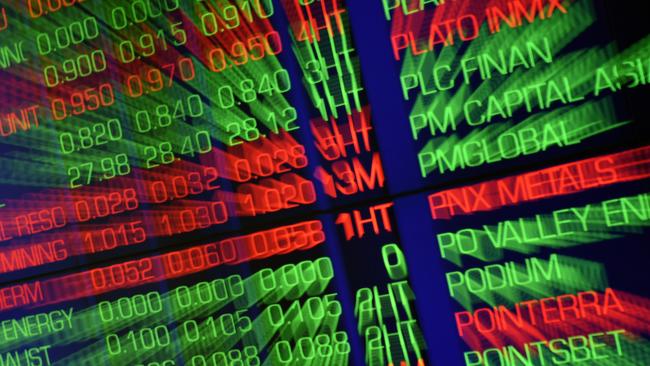
That’s all from the Trading Day blog for Tuesday, January 5. Australian stocks by the close recovered from an intraday fall that followed a tumble on Wall Street, where the Dow lost 1.3 per cent and the S&P 500 and Nasdaq both fell 1.5 per cent.
Cliona O’Dowd 7.44pm: $60bn worth of loans on pause: APRA
Loan deferrals across the nation ticked down in November as the economic recovery from the coronavirus pandemic gathered pace, with $60bn worth of loans on pause at the end of the month, according to new figures from the prudential regulator.
The value of loan deferrals sits at 2.3 per cent of the $2.7 trillion in total loans across Australia’s lenders, and is down from a peak of 10 per cent in May and June.
For the first time since the crisis hit in early 2020, housing loans had a higher incidence of deferrals, with 2.8 per cent of housing loans, or $49.5bn, on repayment holidays compared with 2.4 per cent, or $7.6bn, of small and medium-sized business loans, the Australian Prudential Regulation Authority revealed.
Exits from deferrals outweighed new entries for the fifth straight month in November, APRA said, with $32bn in loans expiring or exiting repayment holidays as $7bn entered or extended deferral.
Victoria still has the highest proportion of loans on pause, with 3.2 per cent of loans deferred compared with the rest of the country at 1.7 per cent.
The state was at the epicentre of the second wave of the virus, which took hold from July, and its 820 deaths from the virus account for the vast majority of the total 909 across the nation.
4.40pm: ASX recovers from intraday fall
Australia’s sharemarket mostly recovered from an intraday fall caused by a sharp selloff on Wall Street overnight.
The S&P/ASX 200 finished down just 2.35 points at 6681.9 points after falling as much as 0.7pc to an intraday low of 6635.1 soon after the open.
The initial selloff followed a 1.5pc fall in the S&P 500 amid fear of potential tax hikes in the event that both Democratic Party candidates win US runoff elections in Georgia on Tuesday.
Polls for the closely contested Georgia runoffs were due to close at 7am ET (11am AEDT), with opinion polls showing narrow leads for both Democratic party candidates.
The Energy, Industrials, Consumer Discretionary, Financials and Real Estate sectors lost ground, but the Materials sector rose strongly amid commodity price gains.
BHP rose 2.9pc, Rio Tinto gained 2.1pc and Fortescue rose 1.6pc as Dalian iron ore futures rose 2.7pc on Tuesday, while Newcrest jumped 4.1pc after copper and gold prices rose more than 2pc on Monday.
The heavyweight Financials sector was the biggest drag on the market with NAB down 1.1pc and QBE Insurance down 2.6pc, while Industrials were weighed down by a 1.6pc fall in Transurban.
Elise Shaw 3.14pm: Solid lift seen in hiring intentions data
Data showed another solid lift in hiring intentions with job ads rising more than 9 per cent in December after a 13.5 per cent gain in November, notes CommSec chief economist Craig James.
“The lift in hiring intentions should translate to higher employment in coming months, supporting spending,” James says.
Job ads, as measured by ANZ, rose by 9.2 per cent in December to an 18-month high. Job ads are up 5.0 per cent on the year. In the past eight months, job ads have rebounded by 98.3 per cent.
“Businesses continue to re-open, re-build and re-hire workers,” says James. “A stronger job market means the Reserve Bank can stay on the monetary policy sidelines. A healthier job market will support overall economic activity, confidence and spending.”
Elise Shaw 2.29pm: RBA ‘ensuring liquidity”: CommSec
The Reserve Bank has been actively expanding its balance sheet to ensure there is plenty of liquidity in the economy, notes CommSec chief economist Craig James.
“Over the past year, the value of Australian dollar investments has lifted by over $170bn. The value of gold and foreign exchange held by the Reserve Bank stood at a 6-year low of $59.778bn at the end of 2020, down 31 per cent over the year.
“In contrast, the value of Australian dollar investments at the Reserve Bank stood at a record $260.3bn at the end of 2020, up $171.5bn, or 193 per cent on a year ago”.
Elise Shaw 2.06pm: Bank notes in circulation hit record $98.6bn
In uncertain economic times, Aussies have shown a tendency to hold more physical cash, notes CommSec chief economist Craig James.
“And this time is no different. There is currently almost $100bn of bank notes in circulation, around $3800 on average for every Aussie. And the majority of the cash in the economy is in $50 and $100 notes. The value of $50 notes is up almost 24 per cent on the year with the value of $100 notes up over 13 per cent.
“The amount of bank notes in circulation rose by $1.6bn in December, or 1.7 per cent, to a record $98.6bn. The value of bank notes is up by 17.4 per cent over the year.
“The amount of $50 notes in circulation rose by $1.1bn, or 2.3 per cent, in December to stand 23.8 per cent higher than a year ago – the fastest annual growth in 12 years.
“The amount of $100 notes in circulation rose by $346.2m in December, or 0.8 per cent. Annual growth has slowed from a 29-year high of 15.8 per cent in October to 13.6 per cent in December,” James said.
READ MORE: Cash is king in COVID as RBA data reveals an extra $14.6bn in new notes in 2020
12.43pm: US ‘blue wave’ may not hurt: NAB
NAB’s Head of FX Strategy has pushed against the negative reaction of risk assets, including the Australian dollar, from the increasing prospect of a “blue wave” for US Democrats if they take both of the Senate seats that are up for grabs in the Georgia runoffs on Tuesday.
He does note that in the days leading up to November 3, when the blue wave scenario looked increasingly likely, US equities and the Australian dollar were sold off before bouncing sharply after the election when preservation of the Congressional status quo looked highly probable.
Tax, regulatory and bond market concerns evidently won out over the prospect of higher stimulus-driven growth, suggesting risk markets should again take a hit if Democrats take both Georgia seats, as opinion polls now suggest (albeit narrowly).
But with the US still in the grip of the pandemic, and now struggling to look with confidence to a successfully vaccinated population and fully reopened economy in 2021, Mr Attrill says a decent case is made for risk markets being enamoured at the prospects of stronger fiscal support in 2021, putting aside for now – but not indefinitely - concerns about higher taxes and regulation. In his view, preservation of the Senate status quo could harm, not help, risk sentiment on fears 2021 fiscal support won’t be strong enough.
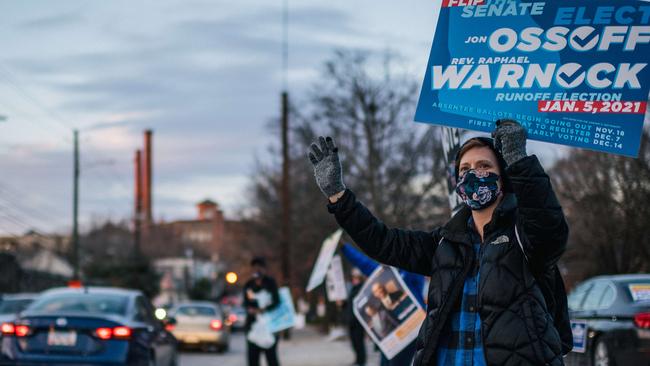
12.09pm: Stocks lower at noon amid US jitters
Australia’s share market was down but well above its intraday low at midday after an early dip following sharp falls on Wall Street.
The S&P/ASX 200 index was down 0.3pc at 6663.5 after falling as much as 0.7pc soon after the open, then paring that decline to just 0.1pc.
S&P 500 futures dipped 0.2pc in early APAC trading before rising 0.2pc, helping the Australian market rebound from the early sell-off.
But the latest opinion polls for Tuesday’s run-off elections for the US Senate in Georgia still show the two Democratic Party candidates ahead.
The risk of the Democrats snaring a Senate majority contributed to a 1.5pc fall in the S&P 500 as it could increase the chance of US tax hikes as well as greater fiscal stimulus.
In the Australian market the Real Estate, Industrials, Energy, Financials, Consumer Discretionary and Utilities sectors were underperforming.
The biggest drags came from the banks with CBA down 0.8pc, NAB down 1.3pc and Westpac down 0.9pc.
Miners continued to buck the sell-off with BHP up 3pc, Rio Tinto up 2pc and Newcrest up 3pc.
Disagreement within OPEC saw oil prices fall overnight, but greater US fiscal spending could be good for commodity prices.
11.06am: Lovisa hit by new UK lockdown
Lovisa shares have fallen 3.7 per cent after the group announced its 42 UK stores would close immediately under Westminster’s new COVID-19 lockdowns.
UK Prime Minister Boris Johston overnight announced a new national lockdown until at least mid-February to combat a virulent new strain of the virus.
Lovisa’s remaining stores, which number around 280, remain open.
The jewellery retailer’s shares last traded down 3.7 per cent at $11.19.

10.25am: ASX opens lower after US falls
Australia’s share market found support after an early sell-off following sharp falls on Wall Street.
The S&P/ASX 200 was down 0.4pc at 6656 after falling as much as 0.7pc to 6635.1.
Falls were fairly broadbased with all sectors except Materials in the red.
The Energy, Real Estate, Industrials, Consumer Discretionary, Financials and Consumer Staples sectors were underperforming.
In those groups, Goodman fell 1.5pc, Woodside lost 1.5pc, Wesfarmers fell 1.2pc, CBA slipped 1pc and Woolworths fell 0.6pc.
The Materials sector stood out with BHP up 2.4pc, Rio Tinto up 1.9pc and Newcrest up 3.2pc after copper and gold prices rose on Monday.
Nick Scali rose 9pc to a record high of $10.78 on strong second half earnings guidance.
Lachlan Moffet Gray 9.34am: Genworth flags US mortgage IPO
After four years and 16 deal extensions, China Oceanwide Holding Group’s proposed US$2.7bn merger with Genworth Mortgage’s parent company Genworth Financial is fizzling out.
In a joint statement released to the ASX and the NYSE, the companies said they had declined to extend the current December 31, 2020 “end date” to the merger agreement, citing complications relating to the COVID-19 pandemic, and the finalisation of Hony Capital financing terms.
Genworth Financial said it remains open to a deal but will in the interim execute a contingency plan including a potential $US1bn IPO of its US mortgage business to pay off an equal amount of debt falling due this year.
Genworth Shares trading on the NYSE plunged 28.84 per cent to close at US$2.69 per share following the news.
9.32am: ASX pullback expected
Australia’s share market is expected to retreat slightly after relatively sharp falls on Wall Street.
S&P/ASX 200 futures fell 0.5pc to 6483 points as the S&P 500 fell 1.5pc to 3700.65 points amid jitters about the Georgia run-off elections and record US COVID numbers.
The S&P/ASX 200 rose 1.5pc to 6684.25 points on Monday, its best start to the year since 2001, but the S&P 500 had its worst start to the year since 2016.
This sharp reversal in the US market could make some recent buyers of Australian shares a bit nervous, risking a bigger than expected fall today.
It’s worth noting that the three major US indexes formed daily bearish key reversal patterns, which could mark the start of a significant pullback.
But of course that will depend on how fundamentals play out and the Georgia runoffs are at the top of the list of concerns early this week.
Wins by Democratic Party candidates could increase the chance of US corporate and capital gains tax hikes potentially upsetting the US share market.
But the increased chance of major fiscal stimulus under a Democrat majority vote in the Senate might favour the Materials sector, which outperformed along with Health Care and Energy.
BHP ADRs equivalent close at $43.91 was a 1.9pc premium to BHP’s close in Sydney.
9.20am: CIMIC names new CFO
CIMIC says Emilio Grande will succeed Stefan Camphausen as chief financial officer, effective immediately.
Mr Grande is currently CFO of UGL and for several years was CIMIC’s deputy CFO.
9.13am: Santos tick for Bayu-Undan drilling
Santos said it has made a final investment decision on a $US235 million program to tap more gas and liquids resources within its Bayu-Undan field offshore East Timor.
Santos said the Phase 3C infill drilling program comprises three production wells and aims to extend the life of the Bayu-Undan field while guaranteeing new supplies for the Darwin liquefied natural gas plant in Australia.
Santos, which became operator of Bayu-Undan less than a year ago after acquiring the asset from ConocoPhillips, said the first well is scheduled to spud in the second quarter of this year with first production expected before the end of September.
“This infill drilling program adds over 20 million barrels of oil equivalent gross reserves and production at a low of cost of supply and extends the life of Bayu-Undan, reducing the period that Darwin LNG is offline before the Barossa project comes on stream,” said Chief Executive Kevin Gallagher.
Santos owns 68.4 per cent of the Bayu-Undan project and Darwin LNG, which will reduce to 43.4 per cent when it completes a deal with South Korea’s SK E&S.
“The selldown will complete once the final investment decision on Barossa is taken in the first half of 2021,” Mr Gallagher said.
Dow Jones Newswires
9.05am: CC Amatil may get higher offer: Citi
Strong second-half earnings for Coca-Cola Amatil could add fuel to a valuation debate for the company, according to Citi.
With the share price trading at a small premium to the $12.75 offer price from Coca-Cola European Partners, there are clearly shareholders who expect a bump in the offer, according to Citi analyst Craig Woolford.
“The next six weeks will be pivotal given the earnings results for Amatil will be the foundations for the debate about the future earnings trajectory,” he says.
“We do see upside risk to an offer, particularly given 2H20e earnings are likely to point towards annualised EPS closer to 60 cents come 2021.”
Moreover, the continued recovery of volume and earnings for Amatil increases the possibility that a higher bid will emerge.
“We would still view an upside case as modest, perhaps a larger dividend could be retained by shareholders in February 2021,” Mr Woolford says.
A “bump” up in the offer price of 25-50 cents per share is possible in his view. CCL shares last traded at $12.94.
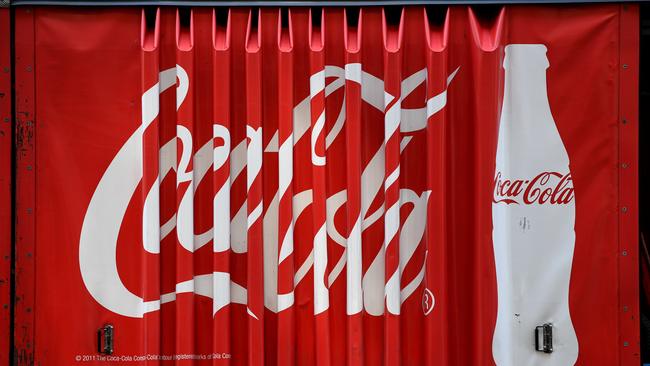
8.58am: Shares vulnerable on Georgia runoffs: JPM
Risk markets including shares are vulnerable in the near term because of elevated positioning by momentum traders and the risk of an increase in volatility into this week’s Georgia Senate runoffs, according to JPM.
“There is a risk that market focus could shift toward the near-term risk of tax rises in the event that Democrats win both run-offs, inducing a rise in volatility,” says the US investment bank’s head of global quantitative and derivatives strategy, Nikolaos Panigirtzoglou.
“In turn, a potential rise in volatility would induce position reduction by vol sensitive investors, who had previously propelled risk markets during November/December,” he says.
“Over the medium term, however, we still see the backdrop supportive given global non-bank investors’ equity allocations are only modestly above their post-Lehman averages and ongoing strong liquidity support.”
The S&P 500 fell 1.5pc overnight, its biggest one-day fall since October 28th.
8.40am: Bitcoin valuation challenging: JPM
Bitcoin’s valuation and position backdrop has “become a lot more challenging” at the start of the year, warns JPMorgan’s head of global quantitative and derivative strategy, Nikolaos Panigirtzoglou.
“We note that the spectacular Bitcoin rally of the past few weeks has moved Bitcoin into more challenging territory not only in terms of its positioning backdrop, but also in terms of its valuation,” he says.
“While we cannot exclude the possibility that the current speculative mania will propagate further, pushing the Bitcoin price up towards the consensus region of between $50k-$100k, we believe that such price levels would prove unsustainable.”
The cryptocurrency rose as much as 19pc to a record high of $US34,792.47 in the first three days of the year. It dipped to $US28,019.07 overnight and was last trading around $US31,354.
8.32am: Nick Scali flags profit jump
Furniture seller Nick Scali says unaudited net profit after tax for the six months to December 31 is expected to be $40.5m, up about 100pc on the prior corresponding period.
It says the profit upgrade follows better than previously anticipated container availability during November and December, leading to increased delivery volumes.
Nick Scali said after first quarter sales rose 45 per cent, second quarter growth was 58 per cent, driven by the reopening of Melbourne stores and the Black November campaign.
“Total written sales orders for the six months to December 31 2020 exceeded delivered sales
by approximately $20m due to exceptional growth in written sales orders during Q2,” it told the ASX.
“Consequently, the sales order book was at an all-time high at December 31 2020 and this is
expected to translate to material revenue and profit growth in the second half of the financial
year, subject to there being no further disruption to the store network or supply chain.”
Despite store sreopening, digital sales continued to grow in the second quarter.

8.23am: Qantas selling international tickets: report
Qantas is reported to have begun selling international airline tickets from July this year.
Qantas has launched bookings for its routes to the USA and London, having previously pulled them from the schedule until at least October 2021, according to Executive Traveller.
New Zealand has been the only overseas destination on Qantas’ timetable until March 29.
Former opposition leader Bill Shorten has hit out of the airline over stranded Australians overseas looking to return home.
“In light of all the emails I’m getting from trapped Aussies, it seems the only strategy we have for our Aussies overseas is to send some friends to be trapped with them,” he said.
“Good on Qantas for giving a bit of hope, but I think we need to make sure it is safe to fly and can we get some of the Australians home.
“I’m more worried about getting people home than sending people back overseas.”
8.10am: ASX to open lower after US slide
Australian stocks are poised to open lower after falls on Wall Street amid continuing worries about the coronavirus vaccine rollout, and nervousness over Senate election races.
Close to 8am (AEDT) the SPI futures index was down 30 points, or about half a per cent.
Yesterday, Australian shares surged in an encouraging start to the year, rising 1.5 per cent.
The Australian dollar is lower at US76.67c.
Spot iron ore is flat at $US159.20 a tonne. Gold stocks could be in for another strong day, after the gold price rose 2.7 per cent overnight to $US1946.60 an ounce.
Brent oil shed 1.4 per cent to $US51.09 a barrel.
8.05am: Wall Street starts 2021 with slide
US stocks tumbled on the first trading day of the year, retreating sharply from records set just days ago.
The Dow Jones Industrial Average fell by as many as 725 points before recovering a bit to trade 383 points, or 1.3 per cent, lower. The S&P 500 and the Nasdaq Composite both declined 1.5 per cent.
Investors are starting off the new year fixated on the same issue that dominated markets for much of 2020: the coronavirus pandemic. Many believe economic activity will be able to pick up later this year as more of the population is vaccinated and businesses are able to reopen. But they acknowledge the path to recovery will likely be long and uneven.
News on the pandemic front has painted a grim picture in recent days. Hospitalisation in the US jumped to a record Sunday. Meanwhile, governments across Europe are extending lockdowns to try to slow the spread of the virus.
The difficulties that countries face in containing the pandemic mean many companies will remain vulnerable to financial pressures in the near term, analysts said.
“We have continued concerns over COVID-19 and the ability to staunch this wave, not just in the US but globally,” said Quincy Krosby, chief market strategist at Prudential Financial.
Ms Krosby added that there appeared to be growing nervousness over Tuesday’s Georgia run-off races, which will determine whether Republicans are able to hold on to control in the Senate. In recent days, betting markets have shown the Republican lead shrinking, pointing to what will likely be a tight race.
“These are all of these concerns, and then we have a market that is priced to perfection, which is denting returns right now,” Ms. Krosby said.
Among individual stocks, Coca-Cola shares fell 3.8 per cent. RBC Capital Markets analysts downgraded the stock to “sector perform” from “outperform,” saying they believe the pandemic will continue to limit major public events and dining at restaurants, potentially hurting demand for Coca-Cola’s products.
Airline stocks, another group that has been hard hit by the pandemic, fell as well, with American Airlines and Delta Air Lines both losing more than 3 per cent.
One stock that bucked the trend: Tesla. The electric-car maker rose 3.4 per cent after saying it delivered a record 499,550 cars last year, just shy of its half a million target.
Overseas, the pan-continental Stoxx Europe 600 rose 0.7 per cent, paring earlier gains.
China’s Shanghai Composite gained 0.9 per cent, even after a private survey showed China’s manufacturing activity moderated in December due to weak demand for the country’s exports.
Dow Jones Newswires
7.55am: US CEOs urge Congress to certify Biden’s win
Nearly 200 top US business leaders pressed Congress to certify President-elect Joe Biden’s electoral victory, the latest attempt by corporate executives to publicly urge a smooth transition of power as President Trump and many Republicans continue to dispute the election results.
A letter, sent by the Partnership for New York City, which represents the city’s business leaders and largest employers, called on Congress to certify the electoral vote on Wednesday as the nation continues to reel from the coronavirus pandemic.
“Attempts to thwart or delay this process run counter to the essential tenets of our democracy,” the letter said. “Our duly elected leaders deserve the respect and bipartisan support of all Americans at a moment when we are dealing with the worst health and economic crises in modern history.”
Among the roughly 170 business leaders who signed the letter are the heads of financial firm BlackRock Inc., consultancy Deloitte, airline JetBlue Airways Corp. and pharmaceutical company Pfizer Inc., according to a release sent by the partnership. The group includes a number of Fortune 500 companies across industries as well as New York-based financial services firms and law firms.
Dow Jones
7.15am: UK PM announces England-wide lockdown
Nearly 56 million people in England will return to a full coronavirus lockdown, possibly until mid-February, to try to cut spiralling infection rates, Prime Minister Boris Johnson said.
The measures, which include the closure of primary and secondary schools, will come into effect Wednesday, he said in a televised address, after Scotland announced similar measures to come into force from midnight on Tuesday.
Some 44 million people or three-quarters of the population of England are already living under the toughest restrictions, as Britain grapples with one of the worst mortality rates from coronavirus in the world.
But they have failed to halt an upward trend in positive cases, which have been blamed on a more infectious new variant.
Johnson said that as of Monday, almost 27,000 people with Covid were in hospital -- 40 per cent more than at the peak of first wave of the outbreak on April last year.
Last Tuesday, more than 80,000 people tested positive in just 24 hours.

AFP
6.30am: US stocks slide to start 2021
US stocks tumbled on the first trading day of the year, retreating sharply from records set just days ago.
In early afternoon trade the Dow Jones Industrial Average was down 1.6 per cent, the S&P 500 had shed 1.7 per cent and the Nasdaq Composite declined 1.7 per cent.
Investors are starting off the new year fixated on the same issue that dominated markets for much of 2020: the coronavirus pandemic. Many believe economic activity will be able to pick up later this year as more of the population is vaccinated and businesses are able to reopen. But they acknowledge the path to recovery will likely be long and uneven.
News on the pandemic front has painted a grim picture in recent days. Hospitalisation in the US jumped to a record high Sunday. Meanwhile, governments across Europe are extending lockdowns to try to slow the spread of the virus.
The difficulties that countries face in containing the pandemic mean many companies will remain vulnerable to financial pressures in the near term, analysts said.
“We have continued concerns over COVID-19 and the ability to staunch this wave, not just in the US but globally,” said Quincy Krosby, chief market strategist at Prudential Financial.
Ms. Krosby added that there appeared to be growing nervousness over Tuesday’s Georgia run-off races, which will determine whether Republicans are able to hold onto control in the Senate. In recent days, betting markets have shown Republican lead shrinking, pointing to what will likely be a tight race.
Overseas, the pan-continental Stoxx Europe 600 rose 0.7 per cent, paring earlier gains.
Most major stock benchmarks in the Asia-Pacific region advanced. South Korea’s Kospi Composite led gains, rising 2.5 per cent. China’s Shanghai Composite gained 0.9 per cent, even after a private survey showed China’s manufacturing activity moderated in December due to weak demand for the country’s exports.
Dow Jones Newswires
6.20am: Tesla passes $US700bn market cap
Tesla stock breached the $US700 billion barrier. It was another impressive feat for Elon Musk’s company, but depending on how investors count, Tesla could already be an $US800 billion business.
Tesla stock hit $US744.49, giving the company a market capitalisation of more than $US700 billion for the first time, according to Dow Jones Market Data. A closing price of $US738.48 or above would mean it ended the day valued at more than $US700 billion, roughly 10pc away from passing Facebook’s $US765 billion.
Tesla’s market capitalisation, according to Dow Jones Market Data, took 111 days to go from $US100 billion to $US200 billion, 13 days to go from $US200 billion to $US300 billion, 27 days to go from $US300 billion to $US400 billion, and 63 days to go from $US400 billion to $US500 billion. It leapt from $US500 billion to $US600 billion in eight days, and took 18 more to go from $US600 to $US700 billion.
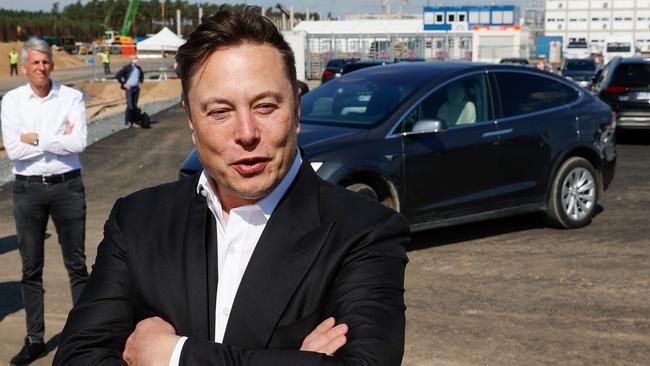
Dow Jones
6.15am: OPEC+ meeting adjourned with no agreement
The videoconference meeting of ministers from the OPEC group of oil producers along with their allies has been adjourned until tonight (AEDT), a source with knowledge of the talks said.
The meeting had been due to decide production levels for February as market volatility continues due to the coronavirus pandemic, but no agreement has been forthcoming and the source said the talks had been “adjourned until tomorrow”.
AFP
6.10am: European stocks post gains
European stock markets advanced amid takeover activity, Brexit relief and vaccine-driven economic optimism on the first trading day of 2021.
London’s FTSE 100 shares index gained 1.7 per cent on the first day since Britain finalised a divorce from the European Union, as dealers noted no signs of the Brexit chaos some had feared.
Frankfurt added less than 0.1 per cent and Paris rose 0.7 per cent.
Initial enthusiasm nonetheless eased during the day to produce more modest closing levels.
In London, the pound briefly reached a 2.5-year peak at $US1.3704 before pulling back to $US1.3584. It gave up around 1.0 per cent against the euro to 90.27 pence.
“The latest lockdowns have dampened investor enthusiasm towards the pound, especially as PM Boris Johnson has warned of ‘tougher’ new measures to control COVID surge across the UK,” ThinkMarkets analyst Fawad Razaqzada remarked.
Scotland on Monday announced a nationwide lockdown for the rest of January.
Oil prices fell ahead of a virtual meeting between OPEC and its allies to decide February output levels, after coronavirus ravaged demand in 2020.
Bitcoin retreated to $US31,340, a day after surging to an all-time high near $US35,000.
AFP
6.00am: Ericsson worried about Chinese retaliation after Huawei ban
The head of Swedish telecoms giant Ericsson, Bjorn Ekholm, is worried about Chinese reprisals after Sweden banned Huawei from taking part in the rollout of 5G networks, he said.
The Swedish Post and Telecom Authority (PTS) announced it was excluding Huawei and ZTE, both from China, from its 5G frequency auction in late October, citing security concerns.
Equipment already installed from the Chinese manufacturers must be removed by January 1, 2025.
“I hope there will be no impact,” Ekholm told daily Dagens Nyheter in an interview.
“China accounts for eight per cent of our revenue. For us it has been a strategically important issue to be present in China,” Ekholm added.

Over the weekend, the newspaper published text messages between Ekholm and Swedish Trade Minister Anna Hallberg in which he asked the government to “talk” with the telecoms regulator.
“At the moment Sweden is a really bad country for Ericsson,” Ekholm complained to the minister.
The PTS decision “excludes our Chinese competitors in a way that no other EU country has done”, he said in SMS messages obtained by the daily.
After the UK in mid-July, Sweden became the second European country and the first in the European Union to explicitly ban Huawei from almost all the infrastructure needed to run its 5G network.
Australia has banned Huawei from its 5G rollout.
AFP
5.50am: PSA, Fiat investors approve PSA merger
Shareholders of the carmakers PSA and Fiat Chrysler gave their blessing to a merger that catapults the new company, “Stellantis,” into fourth place as the auto industry races to make the transition to cleaner cars.
Approval for three merger resolutions tabled at PSA’s annual shareholder meeting -- held online -- was nearly unanimous, PSA chief Carlos Tavares said.
Fiat Chrysler shareholders later followed suit in their virtual vote, and a date for making the merger operational will be announced “very soon,” said Tavares, who will lead the new company.
John Elkann, Fiat chairman and scion of Italy’s storied Agnelli family, will retain his role at Stellantis in what he called “a challenging era.”
“The coming decade will redefine mobility: we are intent on playing a leading role in building this new future,” Elkann said after the vote.
The green light from shareholders had been widely considered a given, coming two weeks after the European Commission gave conditional approval to the deal announced in late 2019.
The 50/50 tie-up, which was delayed by the COVID-19 pandemic, is seen as crucial for the two groups to afford massive investments needed in clean car technology.
It also allows Fiat to strengthen its presence in its key European markets, while the French group will gain a foothold in the US.
The accord combines PSA’s Peugeot, Citroen, Opel and other brands with Fiat Chrysler’s stable that includes their namesake brands as well as Jeep, Alfa Romeo and Maserati.
By number of cars sold, Stellantis and its workforce of over 400,000 will now rank behind Volkswagen, the Renault-Nissan-Mitsubishi alliance, and Toyota -- though it is to be the third-largest automaker by revenue.
PSA and Fiat expect the merger to allow them to achieve billions of euros in savings each year.

AFP


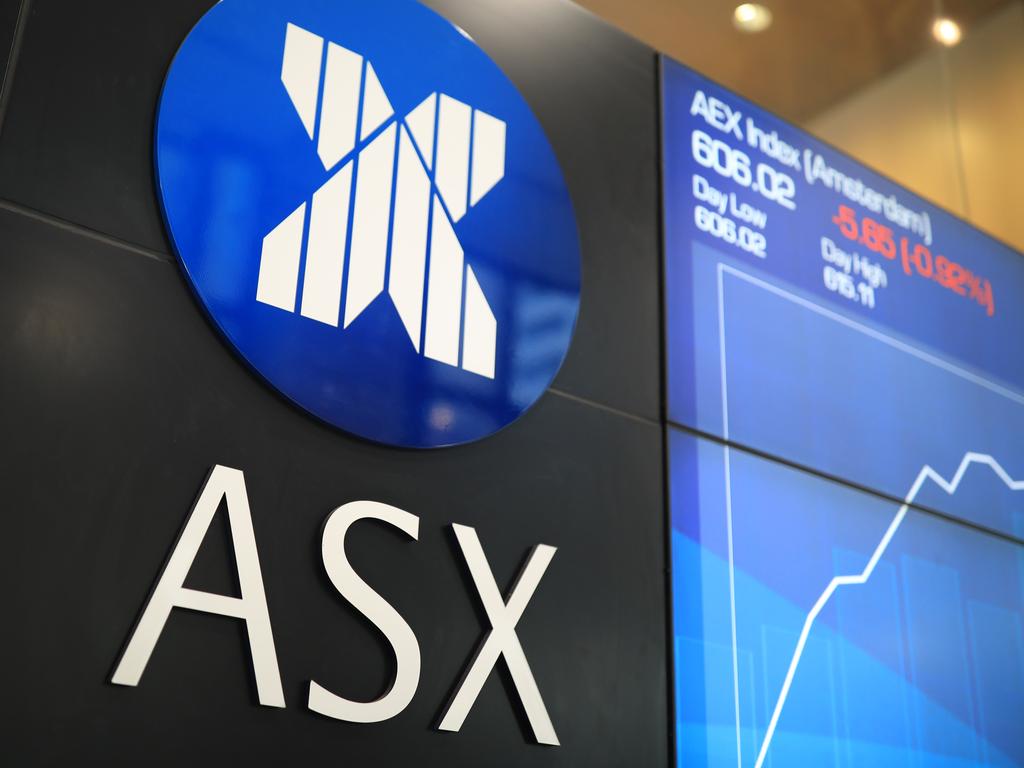

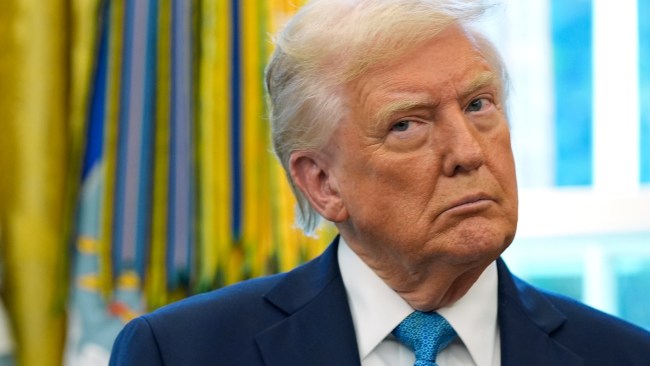
To join the conversation, please log in. Don't have an account? Register
Join the conversation, you are commenting as Logout